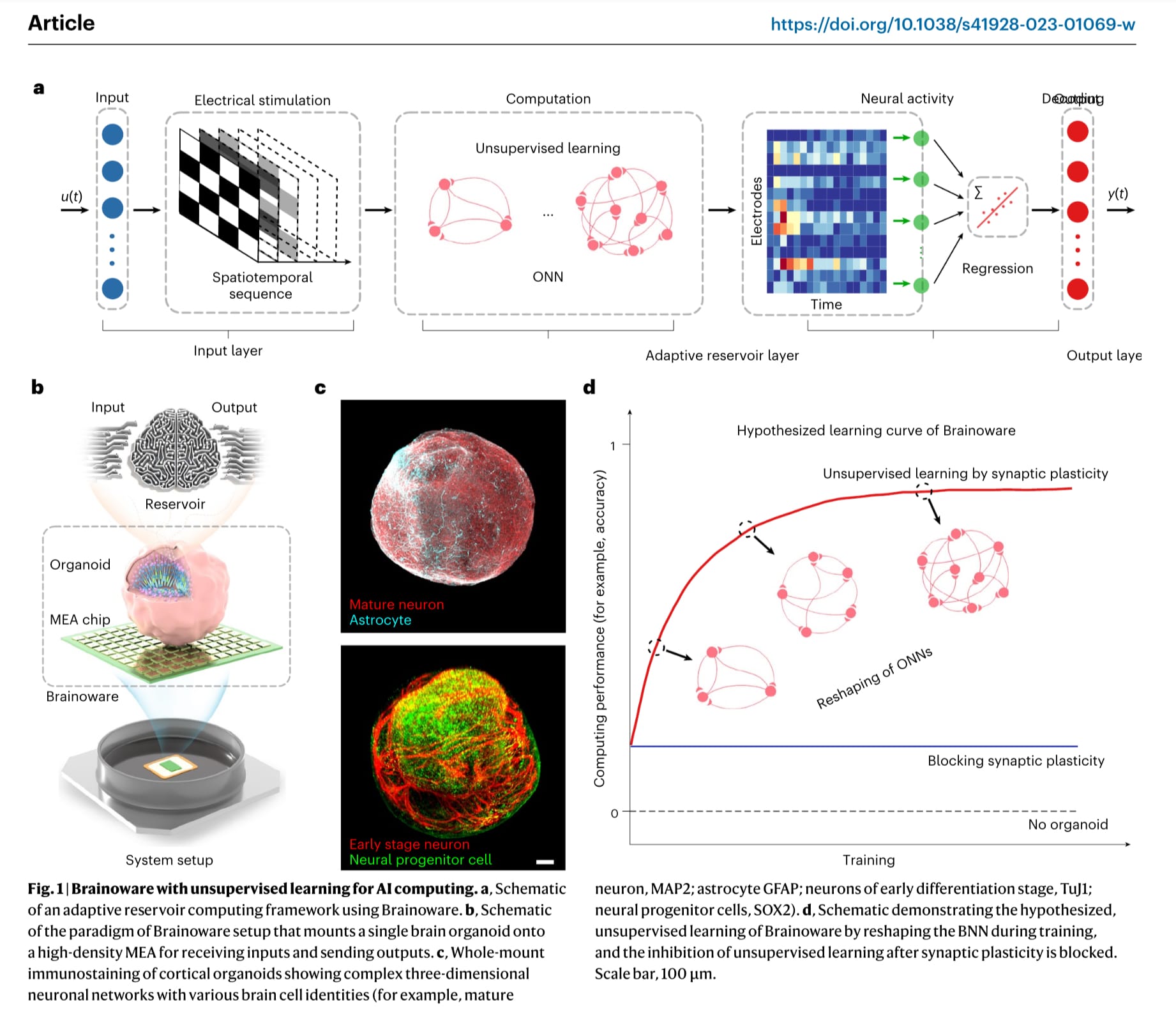Bridging Brain Cells and Microchips with Brainoware
In a groundbreaking study that blurs the lines between biology and technology, Feng Guo and his team at Indiana University Bloomington have opened a new chapter in technological evolution. They've created something remarkable: a hybrid system dubbed Brainoware, which integrates human brain cells with a computer chip. This system, showcased in the latest issue of Nature Electronics, is more than a scientific novelty – it's a peek into the future of technology.

Imagine a world where computers don't just mimic the brain's processes; they incorporate the brain itself. That's what Guo's team has achieved. By generating brain organoids – clusters of human brain cells – from stem cells and integrating them with a computer chip, they've created a bio-computer capable of processing, learning, and even rudimentary speech recognition. This fusion of organic and inorganic elements marks a significant leap in biocomputing.
For decades, scientists have sought to harness the power of biological systems in computing, aiming to overcome the limitations of silicon-based machines. Guo's Brainoware represents a critical step in this journey. Unlike conventional computers, which excel in numerical computation but falter in processing complex information, the human brain operates with astonishing efficiency and versatility. Brainoware taps into this natural proficiency, opening up possibilities for more efficient bio-computers.
The real magic of Brainoware lies in its ability to process information using actual brain cells. When stimulated electrically, the system responds and adapts, indicating a level of information processing akin to learning. This capability was tested in various ways, including solving mathematical problems and performing speech recognition tasks.
While the Brainoware system's accuracy in speech recognition – peaking at about 78% – might not rival that of advanced artificial neural networks, it's a significant achievement. It showcases the potential of brain organoids in computing tasks. However, as Lena Smirnova from Johns Hopkins University points out, we're still at the early stages of understanding and utilizing these capabilities. Brain organoids, while impressive, are not yet at the stage where they can fully replicate human sensory experiences or handle multiple complex tasks.
WTF?
Maintaining brain cell cultures for extended computational use is an immense challenge, yet the progress made by Guo's team cannot be understated. Brainoware is not just a scientific achievement; it's a symbol of the untapped potential in the fusion of biological and digital realms. It suggests a future where bio-computers could operate more like human brains, processing complex information easily and efficiently.
As we look ahead, the implications of this technology are vast and varied. In a world increasingly dependent on computing power, integrating organic components could lead to more sustainable and efficient technologies. Brainoware's success hints at a future where technology and biology coalesce, leading to innovations we've only begun to imagine. This is more than a step forward in biocomputing; it's a leap into a future where the boundaries between life and machine blur, opening up a realm of possibilities that redefine what technology can be.

Member discussion